Changing mindsets, changing lives: The power of social norms programming in ending child marriage

Care Bangladesh in association with The Daily Star organized a roundtable titled "Impact of Social Norms Programming" on February 28, 2023. Here we publish a summary of the discussion.
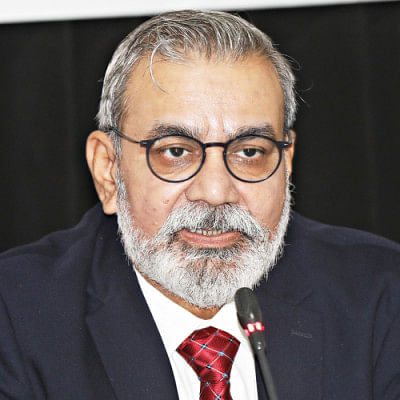
Ramesh Singh, Country Director, CARE Bangladesh
Bangladesh has made significant progress in the last fifty years, and it is on the brink of transitioning from a least-developed country to a middle-income country. However, there are still challenges, such as inequalities of opportunities and pressing issues like Child, Early, and Forced Marriage (CEFM) that need to be addressed.
Instead of just gathering evidence, we need to focus on generating ideas for action. By applying lessons learned from successful initiatives such as Tipping Point Initiative and implementing them effectively, we can reduce the risk of the child, early, and forced marriages by 63%, with further improvements possible.
These evidence-based insights should be integrated into regular programmes, as specific gender programming alone cannot address the larger issue of gender, particularly with child and forced marriages. These components need to be incorporated into various activities, including humanitarian efforts.
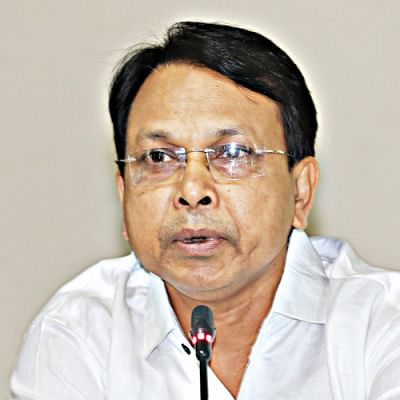
Golam Mortaza, Editor, The Daily Star Bangla
Bangladesh's position in terms of the prevalence of child marriage is extremely concerning. However, it is undeniable that progress has been made in both the government and non-government sectors in addressing this issue. Overcoming such obstacles is challenging, particularly when norms and religious beliefs are involved and people are hesitant to discuss the issue.

Mahmudur Rahman Khan, Technical Coordinator- Research, M&E, Tipping Point Initiative, CARE Bangladesh:
Tipping Point Initiative started in 2013, aiming to identify the root causes and normative expectations behind child, early and forced marriages. The programme seeks to address the issue by engaging with communities and advocating for change. It has successfully engaged with local governments, religious leaders, influential individuals in the community, and families.
The Tipping Point Initiative identified four key norms that contribute to the problem of child marriage: 1) girls' mobility, 2) girls' decision-making power about their marriage, 3) girls' interaction with young boys in their community, and 4) the ability to go to collective action. The programme found that the imposition of normative expectations in these key areas makes it challenging for girls to realize their full potential, ultimately leading to child marriage. The programme is working to challenge these norms using the components of social norms.
In the second phase of the implementation, through 40 sessions, the programme has encouraged discussions about normative roles and initiated changes in mindsets. We involved girls in the decision-making process and empowered them to take the lead. During the second phase, the Tipping Point engaged iccdr,b as a research partner to design and conduct the Randomized Control Trial (RCT) involving 51 villages into three segments (17 villages each). The assessment took place after a 10-month freeze period to allow social norms to set in and have an impact on the community. The main result was that the Tipping Point Initiative reduced the hazard of child marriage for adolescent girls by 63% who attended more than 36 of the 40 sessions. The Initiative has seen positive changes in girls' mobility, self-efficacy, decision-making skills, negotiation skills, attitude towards social norms, knowledge of sexual health, decreased rates of violence and abuse.
The Initiative has noticed changes in parental mindset, with parents now more open to taking girls' wishes and aspirations into consideration when arranging marriages. The programme has also noticed fewer restrictions on girls' interactions with male peers in the community. Furthermore, the program has helped change gender roles and expectations, with girls now expecting non-traditional roles and wanting to participate in outdoor games. Girls' mobility has increased significantly, with riding bicycles for schooling and visiting relatives.
The Tipping Point Initiative's integration of social norms as an approach to address child marriage requires at least 36 weekly sessions or more to get positive results. The programme has shown positive changes in basic interventions as well. However, changing deeply entrenched social norms takes time and continuous efforts.
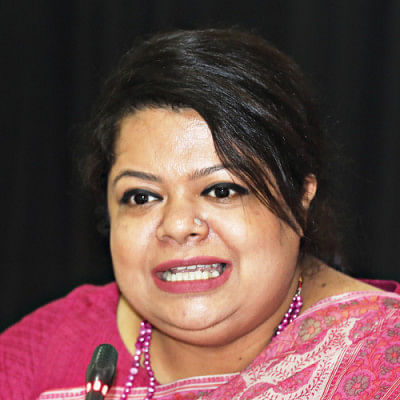
Rawnak Jahan, Director (Acting), WGEP of CARE Bangladesh.
Every sector should work together to effectively address and combat issues like- CEFM in an integrated way focusing on the social norms, ensuring gender-transformative services regardless of age, and roles towards girl-centric services and interventions. We need focused discussions and make a conscious effort in accessing all pertinent information, and services. By taking action and working collectively, we can make a positive shift on this critical issues.
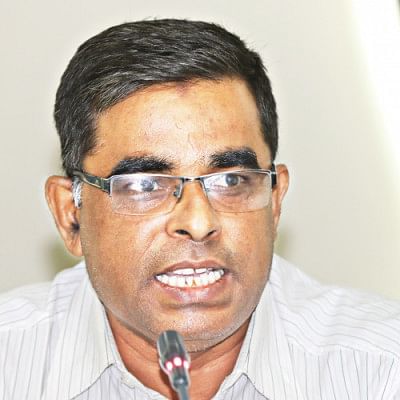
Md Nasir Uddin, Deputy Director, Social Welfare Services
Changing social norms may seem difficult, but gradual progress is possible through collective efforts. Instead of simply reporting on the number of child marriages that have been prevented each year, we should aim to release a report demonstrating a complete eradication of child marriage.The textbook concepts targeting adolescents should not be left stapled but actively taught by teachers. Religious leaders can also play a crucial role in educating people on social norms.
In addition, we can work with our women's football team to help them improve and raise awareness for the cause.
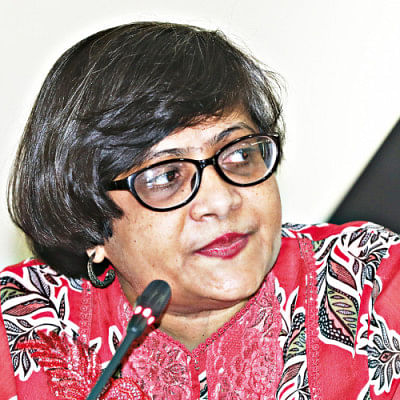
Tahera Jabeen, Social Development Adviser, British High Commission Dhaka
Child marriage cannot be addressed in isolation; we must tackle other related issues as well, such as promoting inclusive economic growth and gender-responsive social assistance. Policies should prioritise and invest in quality education, especially secondary education that focuses on skill development. We also need to scale up measures to support married adolescents. To effectively address child marriage, we must identify prevailing social norms and work towards changing them in a context-specific manner that should collaborate with religious institutions, while in others, more focus on mobility or decision-making skills may be required.
Evidence-based scaling up is vital for creating long-term change. While Randomized Controlled Trials (RCTs) have their merits, their limitations need to be addressed. International organisations should collaborate and share their learnings to implement best practices and think about tools which would be more appropriate to measure qualitative outcomes such as social norms change.
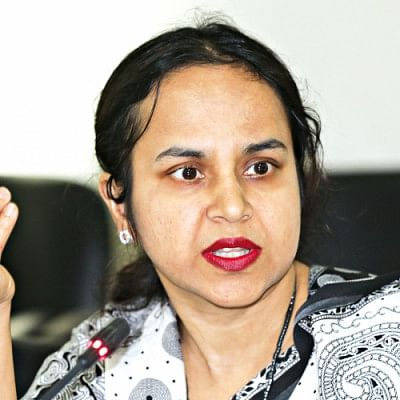
Kamrun Nahar Dolly, Assistant Director and Information Officer, Directorate of Secondary and Higher Education (DSHE)
The education sector has witnessed a rise in girls' participation at the secondary level, which is now at 54%, thanks to various interventions, including the provision of stipends. Another successful intervention was the establishment of adolescent corners by the DSHE, where teenagers received education on SRHR topics. This initiative led to a decrease in the dropout rate, child marriages, and gender-based violence in those areas. Recently, the directorate issued a letter instructing the activation of school committees to tackle sexual harassment.
In rural and underserved areas where child marriage is prevalent due to poverty and hopelessness, offering soft loans to girl students can financially empower them, leading to a reduction in child marriages.
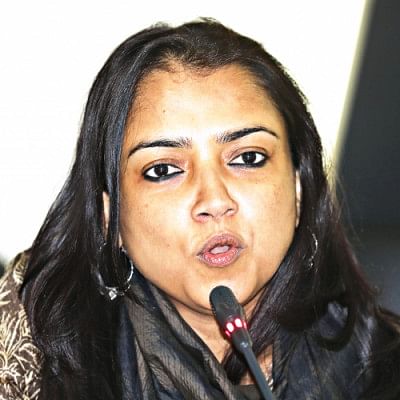
Nobonita Chowdhury, Director, Preventing Violence Against Women Initiative, BRAC
In order to prevent harmful practices like child marriage, it is necessary to continuously work toward changing social norms. Collaborative efforts between government organizations (GOs) and non-governmental organizations (NGOs) have been successful in bringing about change by encouraging community acceptance of birth control methods, sending girls to school, and teaching practical skills like preparing saline. However, in order to overcome centuries of entrenched beliefs and norms surrounding child marriage, the community must see tangible benefits and examples of the positive effects of changing social norms.
Both GOs and NGOs have individual programs aimed at enhancing girls' capacity and skills, but it is crucial to ensure that girls who are at the highest risk of early marriage are participating in these programmes.
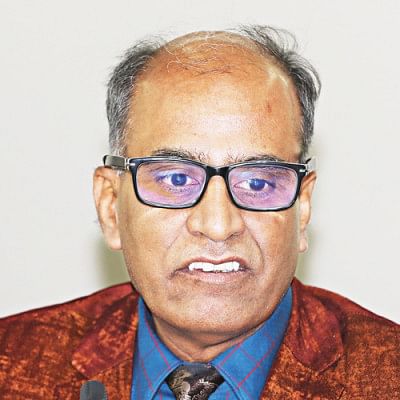
Dr Md Jahangir Alam Prodhan, Deputy Director, MCH, DGFP
The family planning department has been a trailblazer in adolescent healthcare in Bangladesh. The department has developed strategies and action plans for reproductive health, and is working towards the goal of zero gender-based violence by 2041, as committed by the Prime Minister in 2019.
We have established 1203 corners across the country to provide counseling and support to adolescent girls. Life-skills programmes are also being implemented in all districts with the involvement of stakeholders. In addition, premarital, preconception, and post-marital spacing counseling services are being provided. Through these efforts, we are striving to promote the well-being of adolescent girls in Bangladesh and combat harmful social norms.

Umme Sanjida, Tipping Point Activist Girl, Rangpur
The Tipping Point Initiative has completely transformed my life. The most significant change for me has been my newfound ability to speak up and converse with anyone in the village. Through my actions, other young girls including women have come to understand the harmful consequences of early child marriage. The practice of falsifying their daughter's age to justify early marriage must be eliminated.
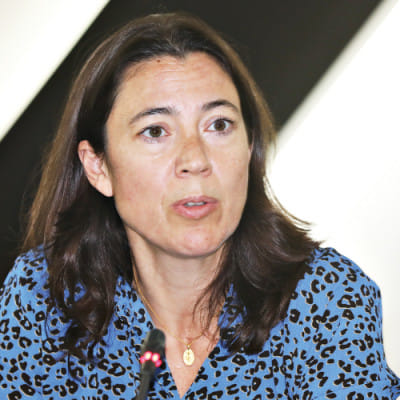
Paola Castro Neiderstam, Program Specialist - Human Rights, Democracy and Gender Equality, Embassy of Sweden
Child marriage is a byproduct of gender inequality, disproportionately affecting young girls. This form of violence violates fundamental child and women's rights. Ironically, in some cases, child marriage is seen as a protective measure by parents, but research suggests this is not the case. We need to understand why child marriage occurs and address harmful social and cultural norms.
Bangladesh has made strides in addressing gender equality, but there is also a need to invest in setting up a strong child protection system. Having a skilled professional social worker workforce is crucial to protect girls when society fails to do so.
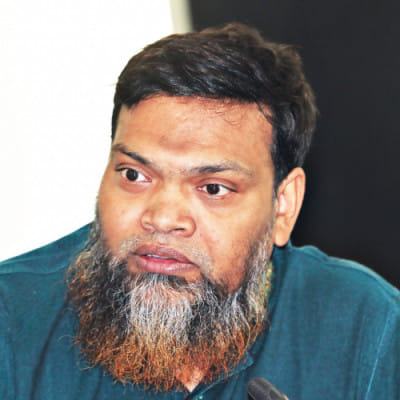
Dr. Muhammad Munir Hussain, Program Analyst- A&Y, UNFPA
Acknowledging that child marriage rates are not decreasing, we must recognise the importance of innovation if we wish to break this pattern.
Some parents may still intend to marry off their children early. To combat this problem, we must focus not only on providing knowledge but also on developing skills that empower individuals to take actions. With increased funding and resources, both government entities and NGOs can work collaboratively to address the challenging issue of child marriage.
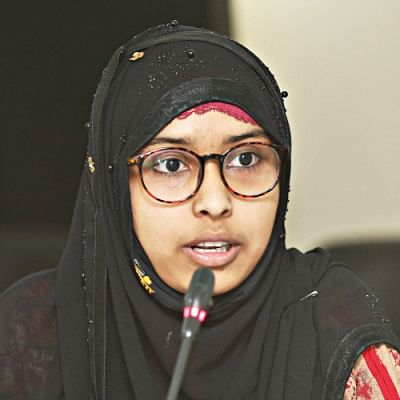
Hanufa Akhter, Tipping Point Activist Girl, Rangpur
I joined the Tipping Point activities and discovered that we were only receiving 10% of our entitled services. After attending sessions, we shared our knowledge and others became aware of our rights. Playing football and seeing our fathers cook were things we never thought would happen. Two men even pledged to stop charging their wives for cooking. Initially, the local chairman, members, and Imam were not interested, but now they warmly acknowledge our success.
I believe that the mental fortitude of parents is key to eradicating child marriage in our society. Unfortunately, some girls I know have already been married and they are younger than me. When their relatives boasted about their marriages and children, my mother stood up for me. Thanks to my involvement with the Tipping Point Initiative, my mother now trusts me more than ever before.
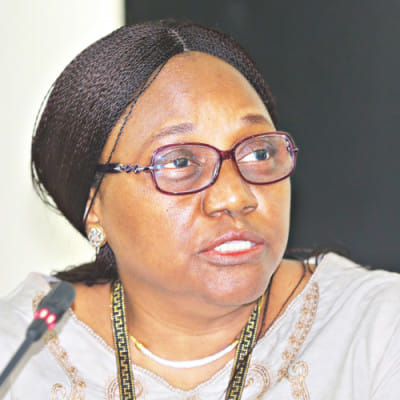
Bridget Job-Johnson, The Chief of Social and Behavioral Changed Section, UNICEF
A whole-society approach is necessary to address child marriage, as religion, culture, and values are closely intertwined with this issue. We cannot afford to leave out certain sections of the population, such as religious leaders, who play a crucial role in society. To achieve this, we must learn from successful experiences of closely working with them.
Despite the presence of many educated women in the country, the prevailing narrative still considers women to be confined to their homes, which needs to be challenged through gender-transformative actions.
It is crucial to address the supply-demand chain of child marriage, as men and boys in Bangladesh often marry young girls for dowry and employment opportunities, but lack the necessary business knowledge which leads to violence and eventual failure. A human-centered design approach involving the common people can lead to better solutions.
We must broaden our focus beyond adolescent girls and involve boys in addressing child marriage. Additionally, parents play a significant role and need to understand their children's needs and how to respond to them. Providing parenting skills, including the ability to talk about sex and sexuality, is also essential.

Humaira Farhanaz, Programme Analyst - Gender, Adolescent & Youth, UNFPA
In Bangladesh, the child marriage rate remains at a concerning 51%. UNFPA recognizes the urgent need to prioritize support for married adolescent girls, as preventing adolescent pregnancy is a critical focus area for our organization.
We strongly believe that marriage should not end a girl's opportunities for growth and development. Equipping them with knowledge about where to seek support can also help to delay age at marriage and consequently their first pregnancy.

Belal Uddin, Technical Advisor, SBC, Program Quality & Development, Save the Children
While we possess knowledge of both the problems and solutions related to adolescents, there seems to be gaps in delivering effective solutions. It is essential to identify the reasons behind implementation gaps.
At Save the Children, we acknowledge that adolescent issues are cross-cutting. Therefore, we aim to take a holistic approach to address the issues across all our interventions. We prioritize girls' issues while also ensuring that boys are not left out of the conversation.
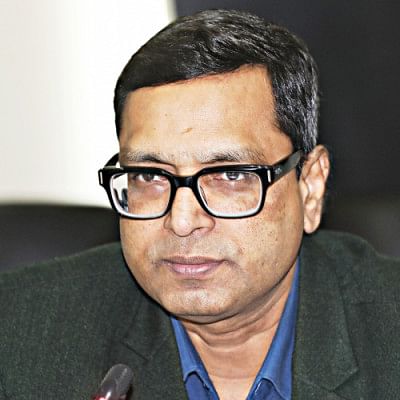
M A Akher, Director Planning, Department of Youth Development
With over 18,500 youth clubs spanning the country, 6,000 of which are registered with us, we have the opportunity to utilize their efforts in addressing the issue of child marriage.
According to our 2017 youth policy, individuals between the ages of 18 and 35 are considered youth, and our youth department works towards serving their needs. Unfortunately, 51% girls who marry before the age of 18 do not receive support from various youth initiatives, and are classified as NEET (Not in Employment, Education, or Training). As part of the Five-Year Plan, the government has set a target of reducing the NEET population to 5%. Additionally, in collaboration with relevant industries, we will offer training opportunities to support their development. Our youth training centers, located in 64 districts, dedicate 10% of their classes towards inspiring young girls to pursue education and enter the workforce.

Sakina Sultana, Team Leader, Tipping Point Initiative, CARE Bangladesh
I would like to express my gratitude for your robust participation and valuable recommendations. I firmly believe that CARE Bangladesh has received important guidance for its future programming through your insights and suggestions.
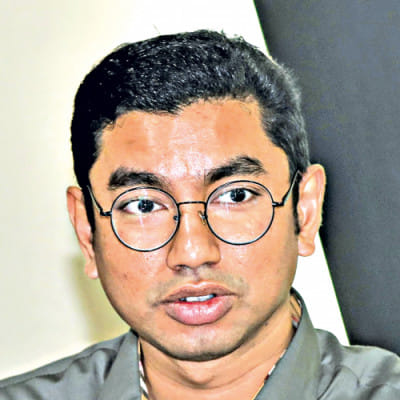
Tanjim Ferdous, In-Charge, NGOs & Foreign Missions section of the Business Development team, The Daily Star & Moderator of the session
According to a Girls Not Brides survey, a staggering 59% of adolescent girls in Bangladesh are affected by child marriage. Even more alarming is the fact that 22% of these girls are married off before they reach the age of 15. CARE has identified various societal factors that must be addressed in order to prevent child marriage. It's not just parents, poverty, or the COVID situation that are to blame, but also the broader societal norms.
Recommendations
- Sustained efforts to change harmful social norms and prioritized integrated approaches which are critical in preventing child marriage.
- Integrate evidence-based insights from gender-transformative initiatives into regular programmes, including humanitarian initiatives.
- Allocating greater resources toward building the skillsets for collective actions and activism by adolescent girls.
- Delivering services efficiently and with a responsive attitude is critical to meeting the needs of adolescents and fostering their well-being.

 For all latest news, follow The Daily Star's Google News channel.
For all latest news, follow The Daily Star's Google News channel. 



Comments